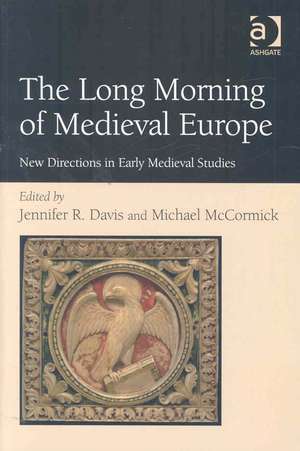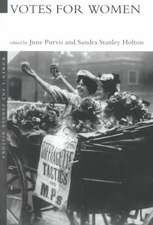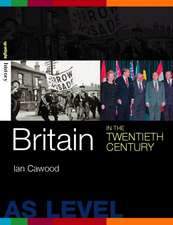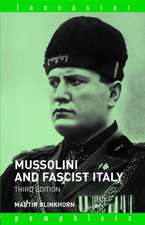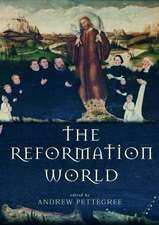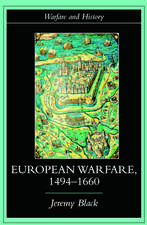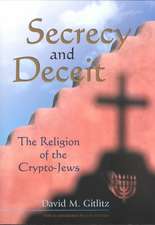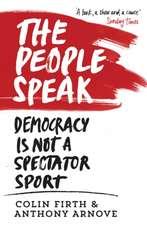The Long Morning of Medieval Europe: New Directions in Early Medieval Studies
Autor Jennifer R. Davis Editat de Michael McCormicken Limba Engleză Hardback – 26 iun 2008
Preț: 826.86 lei
Preț vechi: 1144.55 lei
-28% Nou
Puncte Express: 1240
Preț estimativ în valută:
158.22€ • 169.19$ • 131.92£
158.22€ • 169.19$ • 131.92£
Carte tipărită la comandă
Livrare economică 17 aprilie-01 mai
Preluare comenzi: 021 569.72.76
Specificații
ISBN-13: 9780754662549
ISBN-10: 0754662543
Pagini: 368
Ilustrații: Includes 25 b&w illustrations
Dimensiuni: 156 x 234 x 29 mm
Greutate: 0.84 kg
Ediția:New ed
Editura: Taylor & Francis
Colecția Routledge
Locul publicării:Oxford, United Kingdom
ISBN-10: 0754662543
Pagini: 368
Ilustrații: Includes 25 b&w illustrations
Dimensiuni: 156 x 234 x 29 mm
Greutate: 0.84 kg
Ediția:New ed
Editura: Taylor & Francis
Colecția Routledge
Locul publicării:Oxford, United Kingdom
Cuprins
Contents: Foreword; The early Middle Ages: Europe's long morning, Jennifer R. Davis and Michael McCormick. Part 1 Discovering the early medieval economy, Michael McCormick; Rethinking the structure of the early medieval economy, Chris Wickham; Strong rulers - weak economy? Rome, the Carolingians, and the archaeology of slavery in the 1st millennium AD, Joachim Henning; The beginnings of hilltop villages in early medieval Tuscany, Riccardo Francovich; Molecular Middle Ages: early medieval economic history in the 21st century, Michael McCormick; The early medieval economy: data, production, exchange, and demand, Angeliki E. Laiou. Part 2 Sounding early medieval holiness, Michael McCormick; Latin hagiography before the 9th century: a synoptic view, Guy Philippart with Michel Trigalet; Donationes pro anima: gift and countergift in the early medieval liturgy, Arnold Angenendt; The early medieval transformation of piety, Thomas Head. Part 3 Representation and reality in the artistry of early medieval literature, Michael McCormick; Observations on early medieval weather in general, bloody rain in particular, Paul Edward Dutton; The King says No: on the logic of type-scenes in late antique and early medieval narrative, JoaquÃn MartÃnez Pizarro; Of arms and the (Ger)man: literary and material culture in the Waltharius, Jan M. Ziolkowski; Representations and reality in early medieval literature, Danuta Shanzer. Part 4 Practices of power in an early medieval empire, Michael McCormick; Charlemagne and empire, Janet L. Nelson; A pattern for power: Charlemagne's delegation of judicial responsibilities, Jennifer R. Davis; Practices of property in the Carolingian empire, Matthew J. Innes; The cunning of institutions, Stuart Airlie. Part 5 The intellectuality of early medieval art, Michael McCormick; Charlemagne's balcony: the solarium in 9th-century narratives, Mayke de Jong; Image and object: Christ's dual nature and the crisis of early medieval art, Herbert L. Kessler; Matter
Notă biografică
Jennifer R. Davis is at the California Institute of Technology, USA. Michael McCormick is Francis Goelet Professor of Medieval History at Harvard University, USA.
Recenzii
’As Davis and McCormick declare in their introduction and as the individual contributions attest, the early Middle Ages was no Dark Age... This thesis is ably and convincingly demonstrated... The quality of the individual essays is uniformly strong.’ Catholic Historical Review ’There is much to engage with here, and it is satisfyingly multi-disciplinary, offering - as was intended - a perspective on a wide range of trends in early medieval studies.’ English Historical Review ’Merci à M. McCormick et à J. R. Davis d'avoir publié cet ensemble impressionant et de l'avoir présenté avec intelligence et finesse.’ Revue Bénédictine ’... a volume that is far more than the sum of its parts.’ Early Medieval Europe
Descriere
Scholars from Europe and North America convened at Harvard University in 2004 for an interdisciplinary conference aimed at Rethinking the Early Middle Ages. What are the issues and techniques of research defining the field today, and what will they be tomorrow? From ancient biomolecules to quantitative studies of thousands of medieval manuscripts, via field archaeology and the literary and visual sophistication of early medieval writers and artists, the answers illuminate in an accessible style the vitality of research into the early Middle Ages, and the signal contributions of that era to the future development of western civilization.
